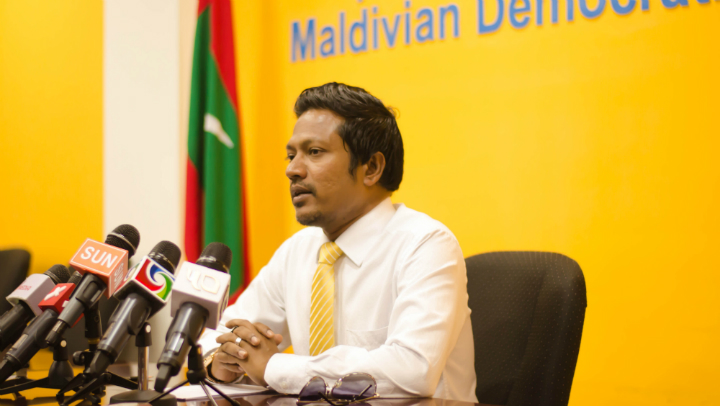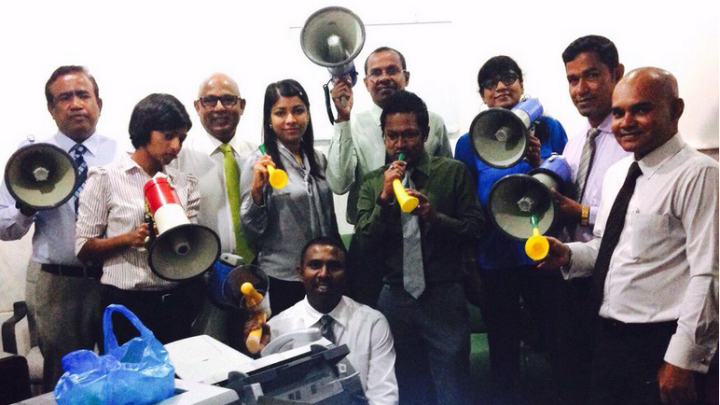The main opposition Maldivian Democratic Party (MDP) has proposed asking the Indian government to assign a mediator for all-party talks in the Maldives.
MDP MP Imthiyaz Fahmy told the press today that the party believes an independent mediator is important to ensure a positive outcome. Fahmy said the mediator should be acceptable to all sides.
“India’s role has always been very important in resolving every challenge facing the Maldives’ political sphere. If a mediator could be arranged from India, we believe it will increase confidence both for the government and the MDP,” he said.
The talks between the government and MDP are due to begin after the opposition party agreed to enter negotiations without former President Mohamed Nasheed as a representative. The government had rejected the opposition leader as a representative on the grounds that he is serving a 13-year jail sentence.
Nasheed was transferred to house arrest this week in an apparent step towards political reconciliation.
Fahmy said the MDP will propose five papers for discussion with the government tomorrow, including a proposal for changing to a parliamentary system.
The MDP national council had compiled a draft paper earlier this month laying out a roadmap for political reconciliation. The paper had proposed transferring jailed opposition leaders to house arrest as a measure to build confidence and trust between the government and opposition.
The MDP’s proposals include conducting the talks among all political parties, including the ruling Progressive Party of Maldives (PPM), dropping charges against opposition supporters arrested from protests, reinstating opposition supporters fired for attending protests, and reviewing disciplinary action taken against opposition councillors.
Other areas of discussion include reforming the judiciary through reviewing the composition of the Judicial Service Commission, restraining the powers of the Supreme Court, and setting a university degree as the minimum qualification for judges.
Under the party’s proposal for shifting to a parliamentary system, President Abdulla Yameen would remain the head of state and the current parliament would remain unchanged, Imthiyaz said.
The ruling coalition with its comfortable majority of 48 seats in the 85-house can designate a prime minister, he added.
Fahmy said the political instability the Maldives has experienced since the first multi-party presidential election in 2008 stemmed from shortcomings in the presidential system.
Coalitions led by the MDP and the PPM had won the 2008 and 2013 presidential elections, respectively, but soon disintegrated, Fahmy noted, contending that coalitions were incompatible with the presidential system.
The MDP is also proposing re-appointing members to independent commissions through consensus among political parties and formulating foreign policy to ensure peace and security in the Indian Ocean.
The Maldives should not be overly dependent on China and stay clear of “disagreements and disputes between India and China,” Fahmy said.
Both the MDP and Amnesty International has previously sought Indian pressure to secure the release of jailed opposition politicians.
The ruling coalition at the time condemned calls for Indian intervention as “irresponsible” while foreign minister Dunya Maumoon expressed confidence that India “will not intervene in domestic politics of Maldives.”
Following Nasheed’s arrest and prosecution on controversial terrorism charges in February, Modi dropped the Maldives from a tour of Indian Ocean neighbours in early March.



